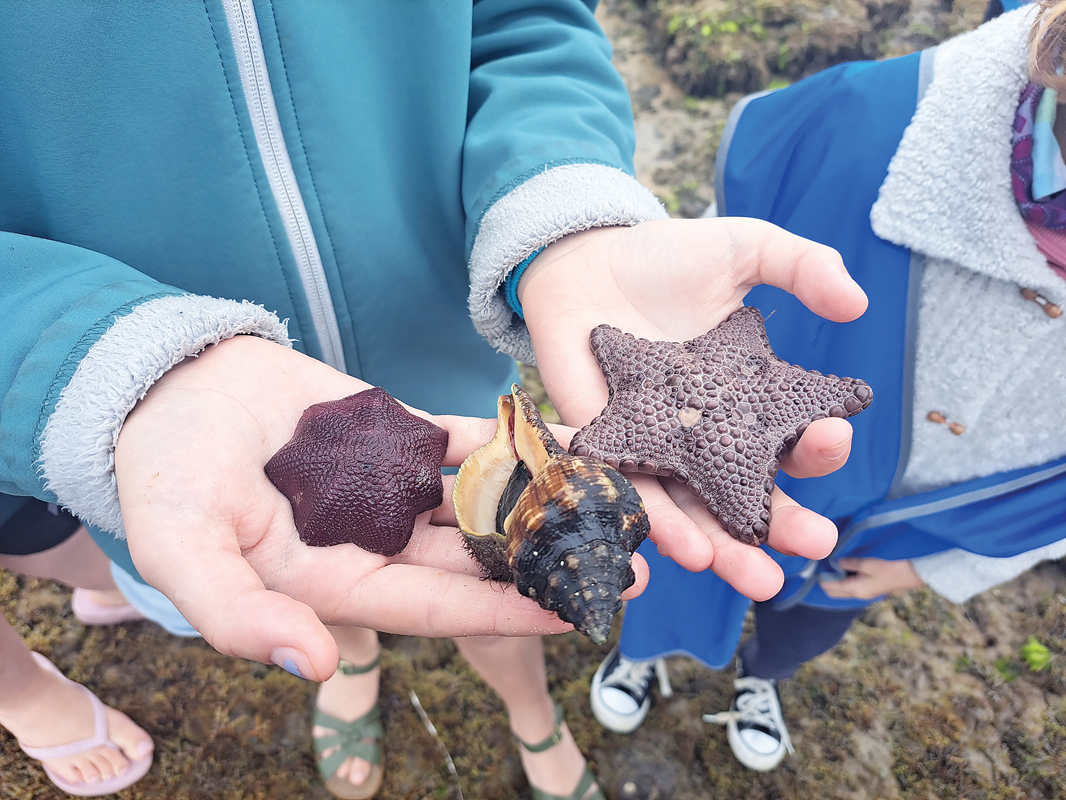THE Dolphin Research Institute has been continuing its education and engagement message over the Christmas/New Year’s break, with several groups enjoying its summer programs.
A little bit of rain did not dampen the enthusiasm on Wednesday 18 January and the dolphin team was lucky the weather cleared just in time as members roamed amongst the rockpools at the beautiful Balnarring Beach with 2022 ISIC (I see I care) ambassadors and general public attendees.
The ‘i sea, i care’ program is an award-winning, innovative leadership and communication program for primary schools. It is also now being tested in secondary schools.
The ‘i sea i care’ program was developed by the Dolphin Research Institute to showcase to Victorians that “what lives around our coast is too precious to lose”. Its surveys highlight Victorians misconceptions about the significance of unique marine ecosystems and species, when research shows more than 90 per cent of Victorians value the marine ecosystems in other states above their own.
The tide was super low and participants found some supersized seastars and snails and many other critters such as Decorator crabs, fishes, anemones, worms, crabs and more.
They even saw a beautiful koala in the trees at the rotunda. A fantastic time was had by all and thanks go to the parents/carers for transporting the kids and for making the day so special for the education team at the Dolphin Institute.
The Dolphin Research Institute is based at Hastings, on the shores of Western Port. DRI’s research is focused primarily in the south-eastern region of Victoria, especially Port Phillip, Western Port and the Gippsland Lakes.
DRI began in the late 1980’s by people who were concerned about local dolphins and their marine environment. The Institute has grown into sustainable, not-for-profit conservation organisation that is the ‘go-to’ for just about all-things dolphin related in Victoria.
The Dolphin Research Institute has been caring for the local bays since 1991, and is proud to be pioneering the federally-funded National Dolphin Health Project.
The Institute has over 30 years of dolphin research – members know the resident dolphins through fin identification and regular surveys; it’s data-base is extensive and ever-expanding.
First published in the Southern Peninsula News – 24 January 2023




